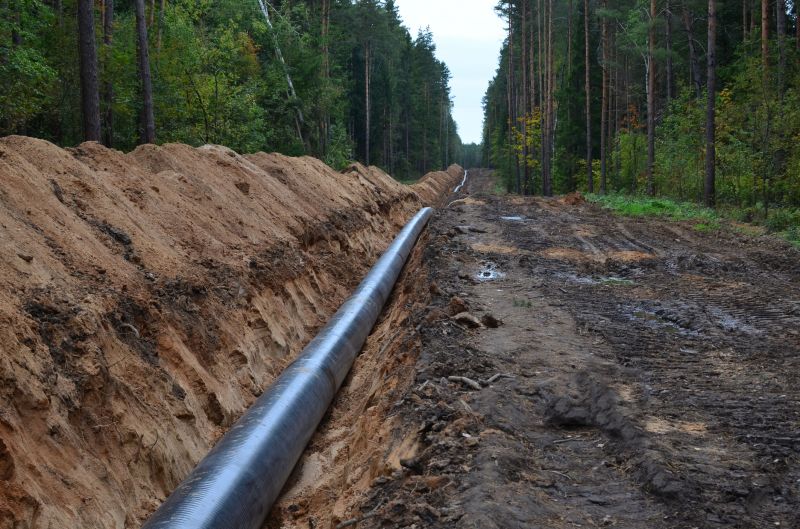Leading Gas Line Service Solutions For Safe And Accurate Results
Invest in reliable products that support precise diagnostics and secure connections in gas line projects.
 Maintaining and servicing gas lines is a critical aspect of ensuring safety and efficiency in residential and commercial properties. Proper tools and equipment are essential for tasks such as installation, leak detection, repairs, and maintenance. Gas line service products are designed to handle the unique demands of working with gas piping systems, offering durability, precision, and safety features. Whether you're a professional technician or a dedicated homeowner, selecting the right tools can make the process smoother and more reliable.
Maintaining and servicing gas lines is a critical aspect of ensuring safety and efficiency in residential and commercial properties. Proper tools and equipment are essential for tasks such as installation, leak detection, repairs, and maintenance. Gas line service products are designed to handle the unique demands of working with gas piping systems, offering durability, precision, and safety features. Whether you're a professional technician or a dedicated homeowner, selecting the right tools can make the process smoother and more reliable.
Top Overall Option
Multi-Functional Gas Line Service Kit
A comprehensive gas line service kit that includes a variety of essential tools such as pipe wrenches, leak detection devices, pipe threaders, and fittings. Designed for durability and ease of use, it provides a versatile solution for both professionals and serious DIY enthusiasts. The kit emphasizes safety features and high-quality materials to support reliable maintenance and repair tasks.
Types of Products For Gas Line Service
Leak Detection Devices
Tools designed to identify leaks in gas lines quickly and accurately, often using ultrasonic or electronic sensors.
Pipe Wrenches
Heavy-duty wrenches used for gripping and turning pipes during installation or removal.
Pipe Threaders
Tools that cut and thread pipes to ensure proper fitting and sealing.
Fittings and Connectors
Various fittings used to connect, extend, or repair sections of gas piping.
Gas Line Cleaners
Specialized brushes and cleaning tools to remove debris and buildup from pipes.
Pressure Testing Kits
Equipment used to test the integrity and pressure capacity of gas lines after installation or repair.
Safety Gear
Protective equipment such as gloves, goggles, and masks designed to keep users safe during service tasks.
Gas Line Plugs and Caps
Tools and fittings used to temporarily seal or cap gas lines during maintenance.
Manifold Gauges
Instruments for measuring pressure within gas lines to ensure proper operation.
Pipe Cutters
Tools for cleanly cutting pipes to desired lengths before installation or repair.
Vacuum Pumps
Devices used to evacuate air from gas lines to check for leaks or prepare for pressure testing.
Flexible Gas Line Hoses
Connectors that provide flexibility and ease of installation in tight or complex spaces.
Popular Choices
Electronic tools capable of detecting even small leaks with high sensitivity, suitable for various gas types.
Versatile wrenches that accommodate different pipe sizes for efficient gripping and turning.
Compact kits designed for quick and reliable pressure testing of gas lines on-site.
Manual tools for threading pipes in tight spaces, offering precision and control.
Complete collections of fittings and connectors suitable for various gas line configurations.
Video tools that allow visual inspection of inaccessible or hidden sections of piping.
Spray solutions used to visually identify leaks by bubbling at the leak point.
Clamps designed to temporarily seal leaks or damaged sections of gas pipes.
Instruments for monitoring pressure levels within gas systems to ensure safe operation.
Handheld tools for cleanly cutting pipes in confined or hard-to-reach areas.
Connectors that accommodate movement and expansion in gas piping systems.
Caps used to seal off gas lines during maintenance or in case of system downtime.
Hoses designed for use with vacuum pumps during leak testing procedures.
The landscape of gas line service products includes a wide variety of items that cater to different needs. From specialized leak detection devices to pipe threading tools, each product plays a vital role in ensuring the integrity of gas piping systems. Quality craftsmanship and adherence to safety standards are paramount when choosing these tools, as improper equipment can lead to safety hazards or system failures.
In addition to basic tools, accessories such as adapters, fittings, and protective gear are also important considerations. These components help customize and enhance the functionality of gas line service kits, ensuring compatibility with various pipe sizes and types. Investing in high-quality, versatile products can streamline maintenance procedures and contribute to long-term safety and performance of gas systems.
Whether performing routine inspections or complex repairs, the right set of products can significantly impact the efficiency and safety of gas line work. It is advisable to select tools that are durable, easy to operate, and compliant with industry standards. Proper training and adherence to safety protocols should always accompany the use of any gas line service products to minimize risks and ensure successful outcomes.
Key Buying Considerations
- Compatibility with the specific type and size of gas piping in your system.
- Material durability and corrosion resistance to withstand harsh conditions.
- Ease of use and ergonomic design for prolonged or frequent tasks.
- Safety features such as non-sparking components or insulated handles.
- Compliance with industry standards and certifications for safety and reliability.
- Portability and storage options for easy transportation and organization.
- Availability of replacement parts and accessories to extend product lifespan.
- Manufacturer reputation and customer reviews for quality assurance.
- Compatibility with other tools and components in your existing toolkit.
- Cost-effectiveness balanced with quality and durability.
- Warranty and customer support offered by the manufacturer.
- Ease of maintenance and cleaning of the tools.
- Versatility of the product for multiple tasks or system types.
- Environmental conditions where the tools will be used, such as indoor or outdoor environments.
- Training or instruction availability for proper and safe operation.
